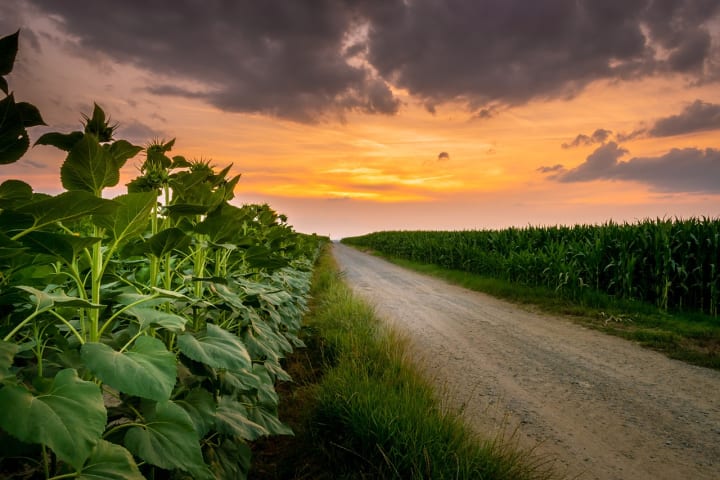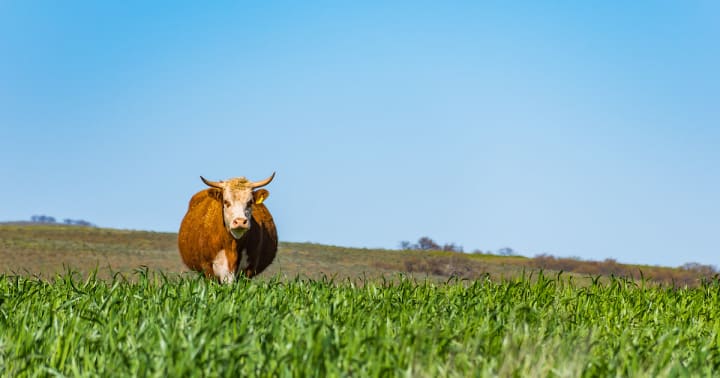
Agriculture is the practice of cultivating crops and raising animals for food, fiber, and other products. It is one of the oldest and most important human activities, and has played a critical role in the development of human societies throughout history.
The agricultural revolution, which began around 10,000 years ago, was a major turning point in human history. Prior to this time, humans were mostly hunter-gatherers, relying on wild plants and animals for food. However, the development of agriculture allowed humans to produce their own food, which led to the growth of settled societies, the development of cities, and the rise of civilization.
Today, agriculture is a vital sector of the global economy, providing food and other products to billions of people around the world. It is also a major source of employment, with millions of people working in the farming, processing, and distribution of agricultural products.

Types of Agriculture
There are many different types of agriculture, ranging from traditional subsistence farming to modern industrial farming. Some of the main types of agriculture include:
Subsistence Agriculture: This type of agriculture is practiced by small-scale farmers in developing countries, who grow crops and raise animals to feed themselves and their families. Subsistence agriculture is typically low-tech and labor-intensive, and relies on traditional farming methods.
Commercial Agriculture: This type of agriculture is practiced on a large scale, and is designed to produce food and other agricultural products for sale in local or global markets. Commercial agriculture is often highly mechanized, and relies on advanced technology, large-scale irrigation systems, and chemical fertilizers and pesticides.
Organic Agriculture: This type of agriculture emphasizes the use of natural methods and materials to grow crops and raise animals, and avoids the use of synthetic fertilizers, pesticides, and other chemicals. Organic agriculture is often seen as a more sustainable and environmentally-friendly approach to farming.
Industrial Agriculture: This type of agriculture is characterized by large-scale monoculture farming, in which a single crop is grown over a large area. Industrial agriculture is highly mechanized, and relies on large amounts of chemical fertilizers and pesticides to increase yields.

Challenges Facing Agriculture
Despite the importance of agriculture, there are many challenges facing the sector today. Some of the main challenges include:
Climate Change: Agriculture is vulnerable to the impacts of climate change, including increased temperatures, droughts, and extreme weather events. These changes can lead to crop failures, reduced yields, and increased food insecurity.
Soil Degradation: Soil degradation is a major problem in many parts of the world, as intensive farming practices deplete soil nutrients and lead to erosion and soil compaction.
Water Scarcity: Many regions of the world are facing water shortages, which can make it difficult to irrigate crops and raise livestock. This problem is likely to become more acute in the coming years, as climate change and population growth increase demand for water.
Food Security: Despite the fact that agriculture produces enough food to feed the world's population, many people still suffer from food insecurity. This is due to a range of factors, including poverty, inequality, and political instability.
Efforts to Address Agricultural Challenges
Efforts are being made at the global, national, and local levels to address the challenges facing agriculture. Some of the main strategies being pursued include:
Sustainable Agriculture: This approach emphasizes the use of sustainable farming practices, such as crop rotation, intercropping, and the use of natural fertilizers and pesticides.
Precision Agriculture: This approach uses advanced technology, such as GPS and sensors, to optimize crop yields and reduce inputs such as fertilizer and water.
Climate-Smart Agriculture: This approach aims to help farmers adapt to the impacts of climate change, by promoting practices such as drought-resistant crops
About the Creator
Love The Green
Welcome to my page,I hope to share my experiences, insights, and knowledge with fellow nature enthusiasts.Together, we can celebrate the wonders of the natural world, and work to protect and preserve it for future generations to enjoy🌿🌲






Comments
There are no comments for this story
Be the first to respond and start the conversation.